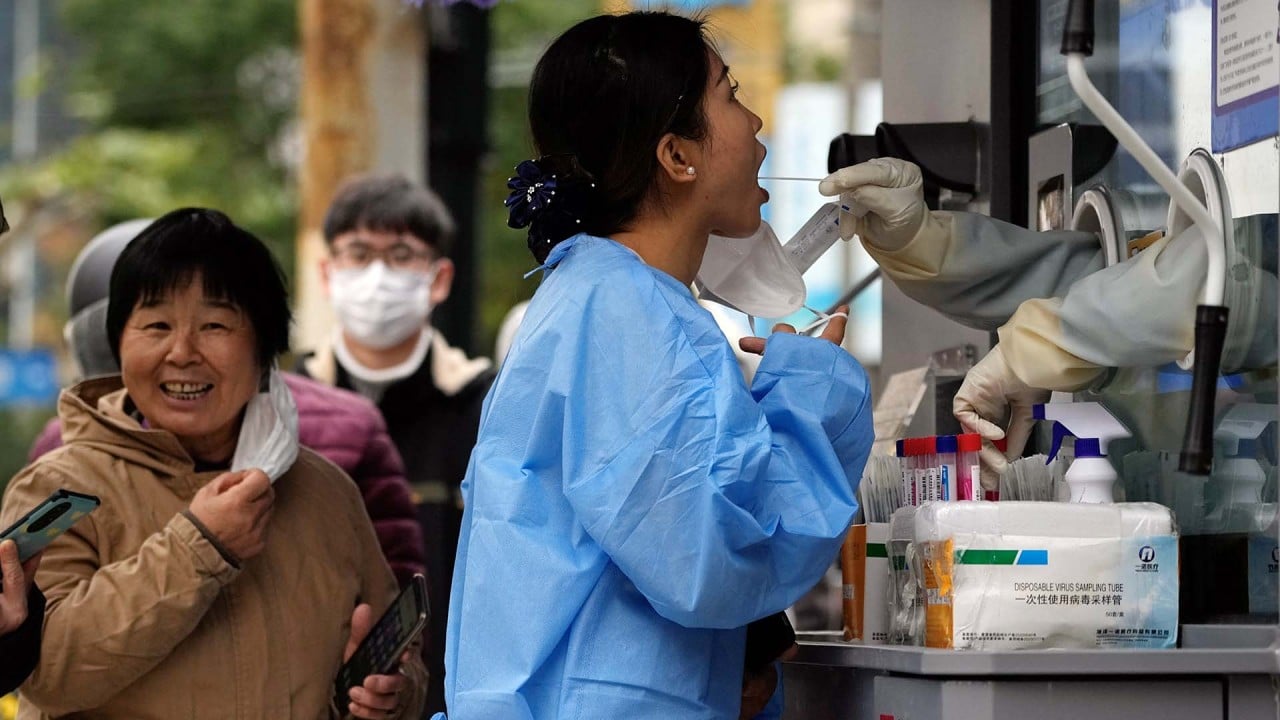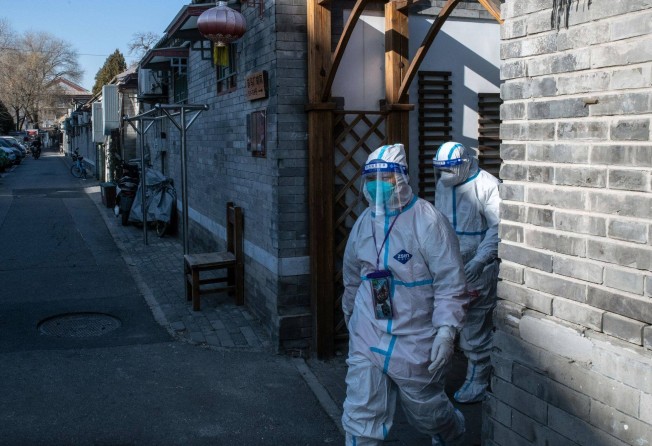
03:27
China further eases pandemic restrictions in latest step towards reopening after zero-Covid

China has moved one step closer to reopening by relaxing its Covid-19 control measures and allowing some who test positive to isolate at home.
Although home isolation has already been quietly implemented for some in cities such as Beijing and Guangzhou, the official announcement by the State Council task force signals China’s determination to move away from its zero-Covid policy.
“We will protect people’s safety and health to the greatest [extent] and keep the impact on social and economic development to a minimum,” the State Council Prevention and Control Mechanism said on Wednesday.
Under the new nationwide instructions, people with mild symptoms or those who are asymptomatic may isolate at home for seven days, instead of being sent to a central facility. Their close contacts may also quarantine at home for five days, instead of the previous requirement to spend eight days in isolation, first at a facility and then at home.
China will also expand the use of rapid antigen tests (RAT) instead of polymerase chain reaction (PCR) tests, only giving PCR tests to those in high-risk areas and occupations, and testing others only on a voluntary basis.
People no longer need to show a negative PCR result or a health code to enter public venues or to travel, except when entering hospitals, schools and homes for the elderly.
Residential complexes should no longer be totally sealed off. Instead, high-risk and low-risk areas will be designated at building level, potentially affecting a single floor or even just one household.
The new policy stressed that basic social and medical services need to be provided. People’s movements, work and production should not be restricted in low-risk areas.
Those working in hospitals, public security, transport, supermarkets, electricity and heating should be exempted from regular restrictions and managed differently, the State Council said.
Other measures include speeding up vaccination among the elderly, especially those over 60, increasing propaganda and educating medical staff on vaccination contraindications.
Schools without Covid-19 outbreaks should resume classes as normal, while supermarkets, cafeterias, gyms and libraries will also open up.
Under the new policy, if an outbreak does occur, the affected school should accurately designate risk zones and ensure normal teaching and social order continues outside the zones.
Communities and grass-roots clinics need to be aware of elderly residents with health issues, such as cardiovascular diseases, diabetes and tumours, as well as whether they are vaccinated, the State Council said.
Pharmacies are required to operate normally and not restrict the public from buying non-prescription drugs to treat fevers, coughs and colds.
The new policy stipulates that public safety needs to be a high priority. Communities are not allowed to block fire exits and gates to residential compounds, making sure people can get to the hospital and leave for emergencies safely.
More channels need to be installed for elderly people living alone, minors, pregnant women and people with disabilities. There also needs to be more psychological counselling for patients and medical staff.
The announcement is the most significant move since November, when the same task force announced a 20-point playbook for relaxing measures, including cutting quarantine and the isolation period for close contacts.
Over the past three years, the public has repeatedly expressed fury over safety incidents caused by stringent lockdowns. In the most recent case, 10 people died in a fire in a block of flats under lockdown – an allegation denied by the local government – in the western region of Xinjiang last month, leading to days of protests across the country.
Urumqi, Xinjiang’s capital, has eased a series of Covid-19 restrictions, while the southern city of Guangzhou last week lifted lockdown measures, scrapped mass testing and resumed public transport.
Major cities including Beijing and Shanghai also relaxed access to public transport, shopping malls and office buildings. Commuters are no longer required to provide negative test results when boarding buses and trains.
In meetings with experts and frontline workers last week, Vice-Premier Sun Chunlan, China’s top official in charge of Covid-19 controls, acknowledged the nature of the virus had changed, saying new variants were less pathogenic. She said the country was facing “a new phase and new tasks”.
She also said the fine-tuning of Covid-19 measures would occur “in small steps but non-stop” – signalling more changes on the way.